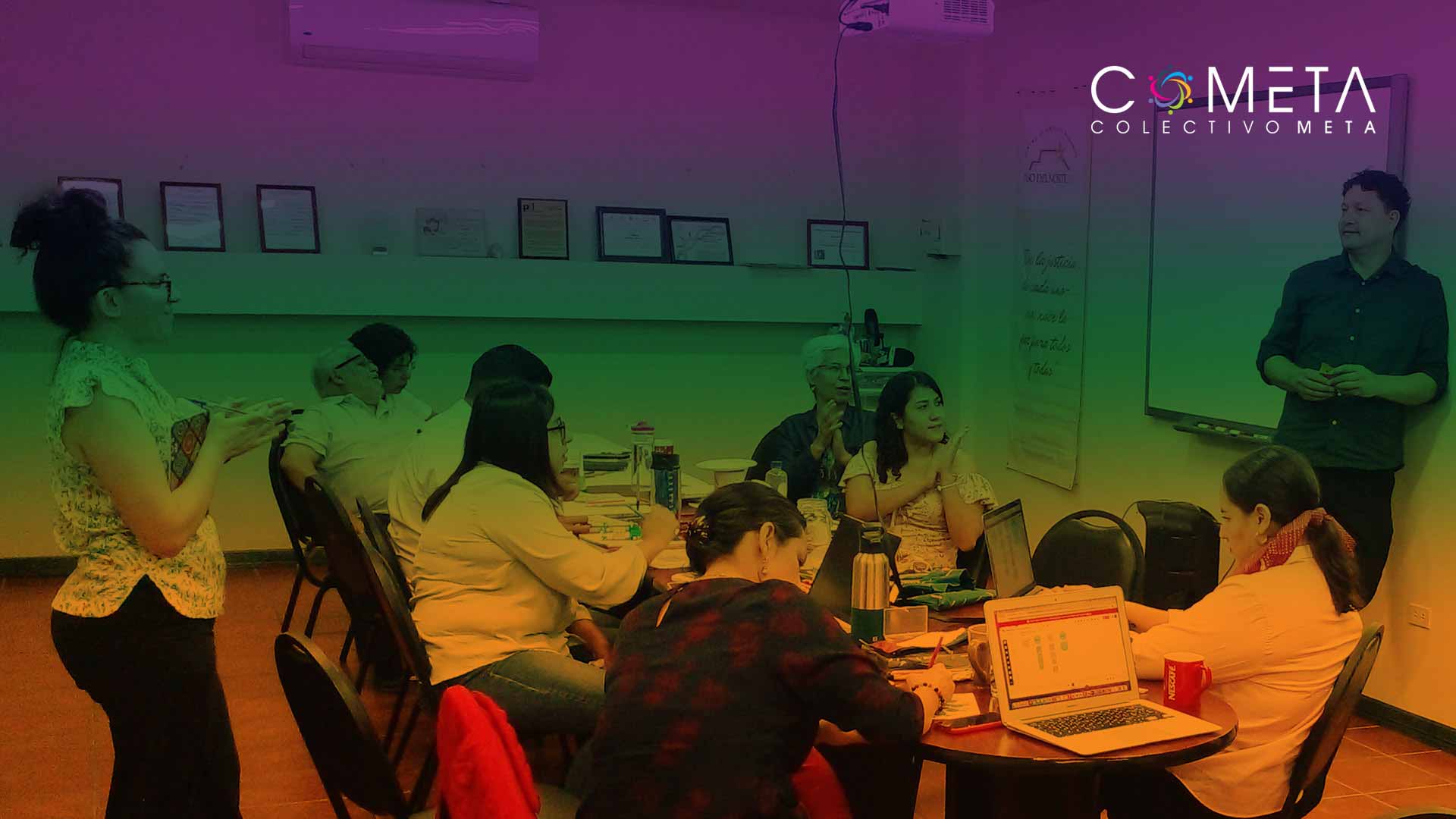It is a mistake to expect different results if you always try the same thing. To innovate and do things differently, you need to construct knowledge. The generation of knowledge is often thought of as a very complicated task, but it should not be. For civil society organizations, sometimes it is enough to closely examine your everyday work, always having in mind our motivations. Why should we do it?
1. To analyze and systematize information that we want to disseminate among citizens
Construction of knowledge is useful for the transmission of relevant information. While it is true that, as an organization, we generate data all the time, it is not always easy to understand. Additionally, it is common that the information we produce remains within the circle of organizations.
If we really want that knowledge to serve a broader audience and to make an impact, we must share it through easily explainable, understandable, and shareable content. For this, it is important to translate the information into simpler language and disseminate it through the channels most used by the audience you want to connect with.
2. To document successful experiences
In addition to being an achievement, successful experiences are an excellent source for knowledge construction. Through them, we can document a very specific situation, the decisions that were made, the strategies that worked, and the outcomes.
These experiences and their optimal results serve as an example of what can be achieved. Therefore, they also become a motivation that can inspire other organizations to continue their work or to avoid starting all over again from the beginning.
We must not forget that it is acceptable to document experiences that were not successful. Even within the same process, we can discuss the mistakes and successes achieved. This way, we transmit the lessons that we learned, so other organizations can avoid the mistakes we’ve made.
3. To generate useful tools for other activists and organizations based on our own experience
Construction of knowledge is also the foundation for creating tools. In addition to sharing the experiences we go through, we can create tools that other organizations can adapt for their own work. At the same time, sharing the tools we develop help us to position our organization as references within our sector. Therefore, we become an authority within our field.
Some tools that we may create are:
· Guidelines;
· Methodologies;
· Case Studies; and
· Tool kits
4. To monitor and evaluate the performance of public officers or to offer evidence about public interest matters
Part of the work of Civil Society Organizations involves monitoring and evaluating the actions of public actors. However, this work goes beyond just reviewing what they are doing and whether they are fulfilling their commitments.
Documenting these results can also be an input for designing an advocacy strategy when governments are not meeting their goals, as it is possible to analyze:
· What commitments did they undertake, and what were their scopes?;
· Have these commitments been modified? Why?;
· What are they actually doing, and what concrete results are they achieving?;
· What direct and indirect consequences are there?;
· What future effects are anticipated?
What else do we need to identify to start constructing knowledge?
Once we have a clear understanding of why we want to generate knowledge, it is necessary to identify our resources to do so:
· Who, within our organization, will do it?;
· Do we already have the information we need? If not, how will we obtain it?;
· What part of our work do we want to use to generate knowledge?;
· Do we need experts in knowledge management or documentation?;
· Do we have the time to do it?
During this analysis phase, it is important to pause for a moment until all the answers are clear. This way, the resulting work will be of higher quality and truly contribute to knowledge construction efficiently.
Another aspect to consider is the audience for whom we want this knowledge to reach:
Is it for internal use only or do we want to share it among our stakeholders or with the general public?
Other considerations
The previous questions are important because the messages and how to communicate them will depend on the audience. It is not the same to share information with experts in the field as it is with people who are not familiar with the concepts or do not know about the topic.
It is important to consider the time needed for the construction of knowledge. Our day-to-day tasks may leave us with little time for additional projects. We may set realistic goals and organize ourselves in such a way that the generation, analysis, and management of knowledge do not require too much time. But it is also possible that it is worth hiring an external expert to support us.
Do not be afraid to generate knowledge from your work
One of the reasons that hinders knowledge construction is not knowing whether our experiences are truly important or if useful lessons can be extracted for other organizations. In this sense, remember that what may be basic information for your organization could be relevant for others who are just starting their journey. So, let’s not be afraid to share what we know. It will always be useful for someone!
Collaboration is key to achieve social change, and an essential part of it is producing and sharing knowledge. Analyzing, documenting and disseminating our own experiences and processes can help us to collectively reimagine the impact we want to make.





